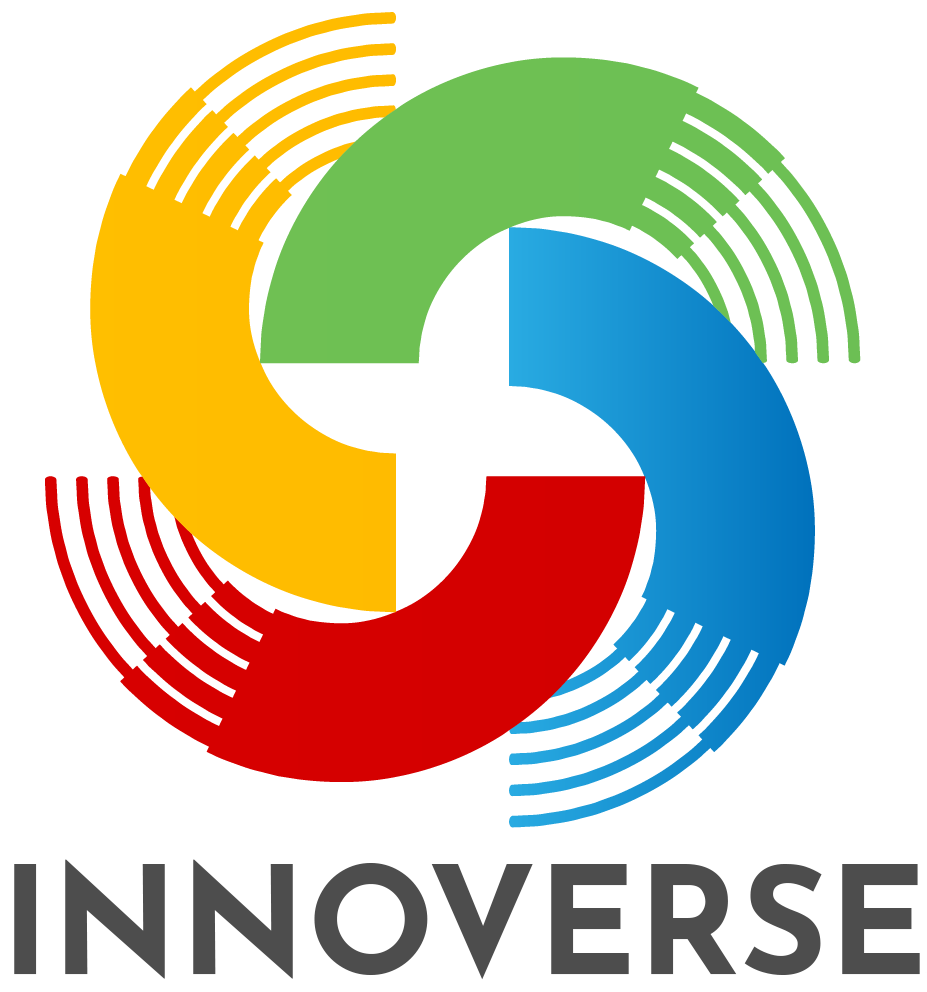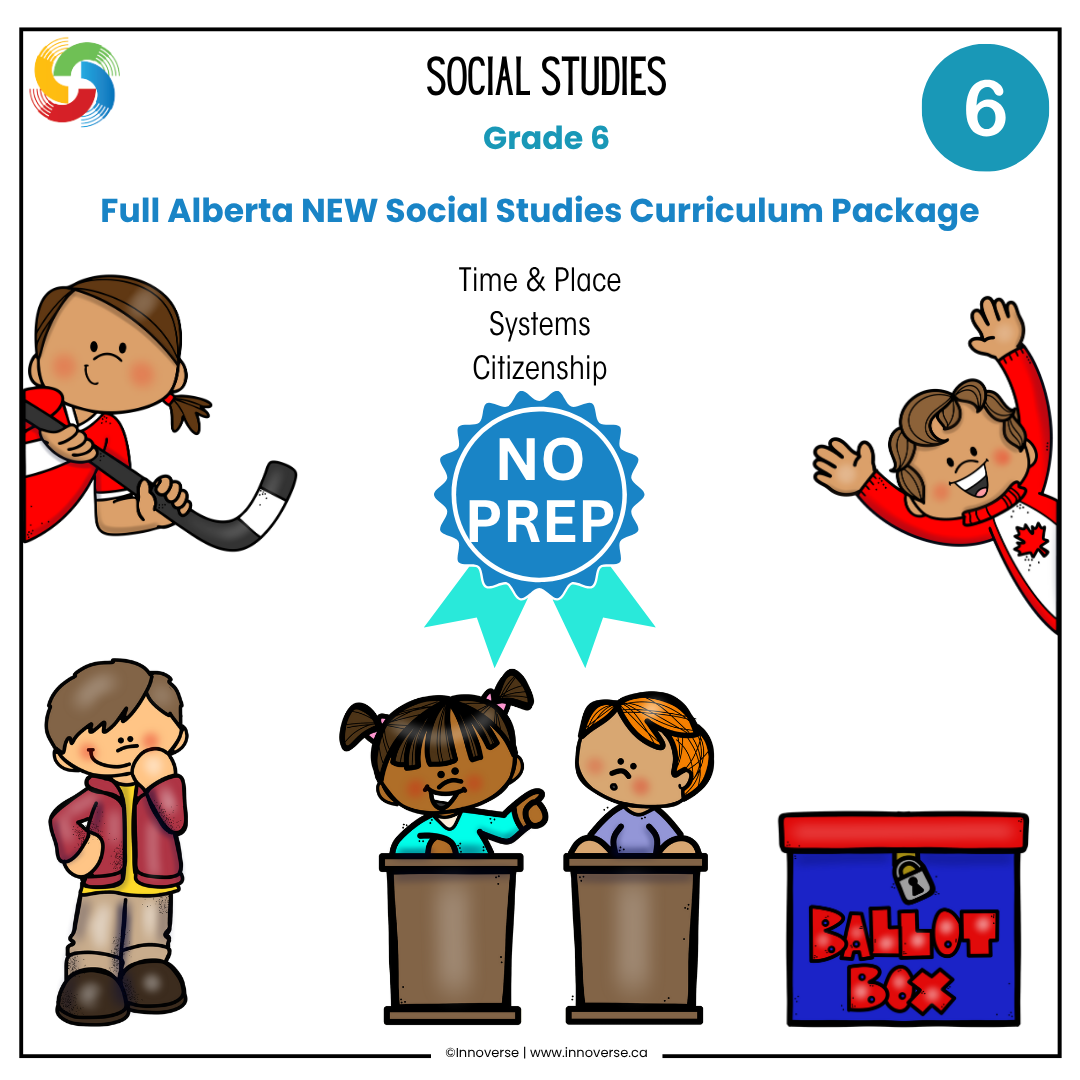Unlock Grade 6 Social Studies: Your No-Prep Workbook Set for Alberta’s New Curriculum!
The new Alberta K-6 Social Studies curriculum marks a significant evolution in how our students understand the world around them. For Grade 6 Social Studies, this means a deep dive into the fascinating history and principles of democracy, exploring everything from ancient civilizations to our own Canadian governance and civic participation. As a seasoned educator, I’ve seen the struggle to find truly comprehensive, Alberta curriculum-aligned resources that cover all thenew architecture of this curriculum, specifically the KUSPs (Knowledge, Understanding, Skills, and Procedures).
That’s precisely why I am choosing to make available the resources I have crafted for my own students. Here is my solution: my Alberta Grade 6 Social Studies No-Prep Workbook Set. This robust package is designed to be your indispensable tool for confidently navigating the new curriculum and empowering your students to master these vital concepts.
Solving the Resource Scarcity for Alberta’s New Social Studies
If you’re an Alberta elementary teacher or a homeschooling parent in Alberta, you know that resources for the new Alberta Social Studies curriculum are still emerging. The search for effective, Grade 6 Social Studies curriculum materials that precisely align with the updated learning outcomes can be daunting. This no-prep set fills that critical gap, providing a comprehensive, ready-to-use solution that saves you precious planning time.
It is important to note that these workbooks are ideologically neutral. They explain how systems work, but they do not delve into left or right wing politics, as understanding and engaging with those perspectives are not part of this curriculum. These resources exist to teach children about HOW government functions, and what the historical roots of government are; not to provide influential political details.
Bridging the Digital Divide with Innovative, Accessible Learning
I strongly believe that quality education should be accessible to all. The digital divide in Alberta education remains a real concern for many families. That’s why the cornerstone of these resources is paper-based learning. These printable Alberta Grade 6 Social Studies workbooks offer a traditional, low-tech environment for core learning, making them ideal for:
- Alberta homeschool families seeking structured Grade 6 Social Studies.
- Remote learning programs requiring independent, engaging activities.
- Flexible learning environments needing reliable, offline resources.
However, “paper-based” doesn’t mean “limited”! To enrich the learning without creating tech headaches, I’ve integrated QR codes for educational videos directly into the workbooks. Students can simply scan these codes with a device (smartphone, tablet or webcam) to instantly access curated, supplementary videos that bring abstract concepts to life.
This set of three booklets provides a powerful blended learning experience that is both deeply engaging and refreshingly low-stress.
Comprehensive Coverage of All Grade 6 Social Studies KUSPs
This workbook set isn’t just a collection of worksheets; it’s a meticulously designed pathway through every KUSP of the Alberta Grade 6 Social Studies curriculum. Your students will actively engage with:
Time and Place: Principles of Democracy and Civic Participation
- Defining Democracy: Students will explore how political systems provide structure for society, understanding that democracy is a political system where the government is accountable to citizens, built on fundamental principles like equality under law, justice, freedom, and representation.
- Global Democracies: They’ll compare different ways countries apply democratic principles throughout history and today.
- Canadian Citizenship: Deep dives into Canadian citizenship rights and responsibilities, including the nuances of civic participation in Canada (both formal and informal actions like voting, petitions, social media campaigns, and community involvement).
- Historical Limitations: Students will examine how civic participation was limited in Canada’s past by factors like gender, property ownership, and First Nations, Métis, and Inuit status, linking to the Canadian Charter of Rights and Freedoms protecting and evolving these rights.
- Influencing Change: Activities will empower students to understand how individuals and groups can influence change in society through critical thinking, discussion, and action, recognizing civic participation as a responsibility of citizens.
- Government Structure and Geography: Explore the fascinating relationship between geographical features and structures of government.
Historical Models of Democracy:
- Ancient Athens: Students will summarize the structure and operation of Athenian direct democracy, connect its features (like majority rule) to contemporary practices, and critique its challenges (e.g., limited participation for women and non-citizens).
- Roman Republic: Analyze the structure and operation of representative democracy in the Roman Republic, evaluating its opportunities and challenges and comparing its enduring features (elected consuls, senators) to modern systems.
- Haudenosaunee Confederacy: Discover the rich history of the Haudenosaunee Confederacy’s governing system, including the Great Law of Peace, the role of Chiefs and Clan Mothers, and the power of consensus decision-making. Students will model the responsibilities of decision-makers and connect these practices to fundamental democratic principles.
- English Foundations of Democracy: Unpack the profound impact of key English legislative changes, including the Magna Carta (1215), the Habeas Corpus Act (1679), and the Bill of Rights (1689). Students will analyze their legacies and justify which event had the largest impact on democracy’s advancement.
The Canadian Charter of Rights and Freedoms:
- Entrenchment and Values: Understand how the Canadian Charter of Rights and Freedoms (1982) was entrenched in the Constitution to reflect Canadian democratic values and diverse heritage.
- Freedoms, Individual, and Collective Rights: Identify fundamental freedoms, individual rights (equality, legal, religious), and collective rights in Canada (Aboriginal and treaty rights, Francophone/Anglophone language education rights).
- Protection and Limits: Examine how the Charter protects all Canadians and applies to all levels of government, while also understanding its reasonable limits and how it can be used to challenge unjust policies and advocate for societal change.
- Addressing Discrimination: Critically examine cultural groups that experience discrimination and racism in Canada, such as antisemitism and Islamophobia, and how the Charter aims to address these issues.
Provincial Systems of Government:
- Alberta’s Provincial Government: Analyze the structure of the provincial government in Alberta, including the roles of the Lieutenant-Governor, Premier, Cabinet Ministers, and MLAs, understanding its basis in the British parliamentary system.
- Democratic Practices: Connect democratic practices in Alberta’s provincial government to earlier systems, evaluating the contributions and legacies of historical models.
- Simulating Elections: Hands-on activities will allow students to simulate elections, gaining practical insight into this vital civic process.
Civic Participation and Project Planning:
- Taking Action: Students will explore both informal and formal ways to be an active citizen in Canada’s democracy, from community support to voting and running for office.
- Project Planning for Change: Learn essential project planning steps (identifying issues, research, setting goals, resources, reflection) to empower them to plan projects for the community and actively contribute to societal well-being.
Designed for Your Success:
- No Prep Required: Simply print and teach! All instructions are clear, and activities are student-ready.
- Embedded QR Codes: Effortless access to supplementary video content enhances engagement without tech setup hassle.
- Complete Answer Keys: Streamline your assessment process and provide immediate feedback to students.
- Excellent for Emergency Subs: A complete, independent unit that any substitute can easily manage.
Don’t let the new curriculum overwhelm you. This Alberta Grade 6 Social Studies no-prep workbook set is your comprehensive, accessible, and engaging solution to ensure your students not only understand but also connect with the rich KUSPs of the new curriculum.
Save yourself the hassle of trying to cobble together resources for Alberta’s new social studies curriculum implementation. Head over to my Teachers Pay Teachers store to grab your copy!

